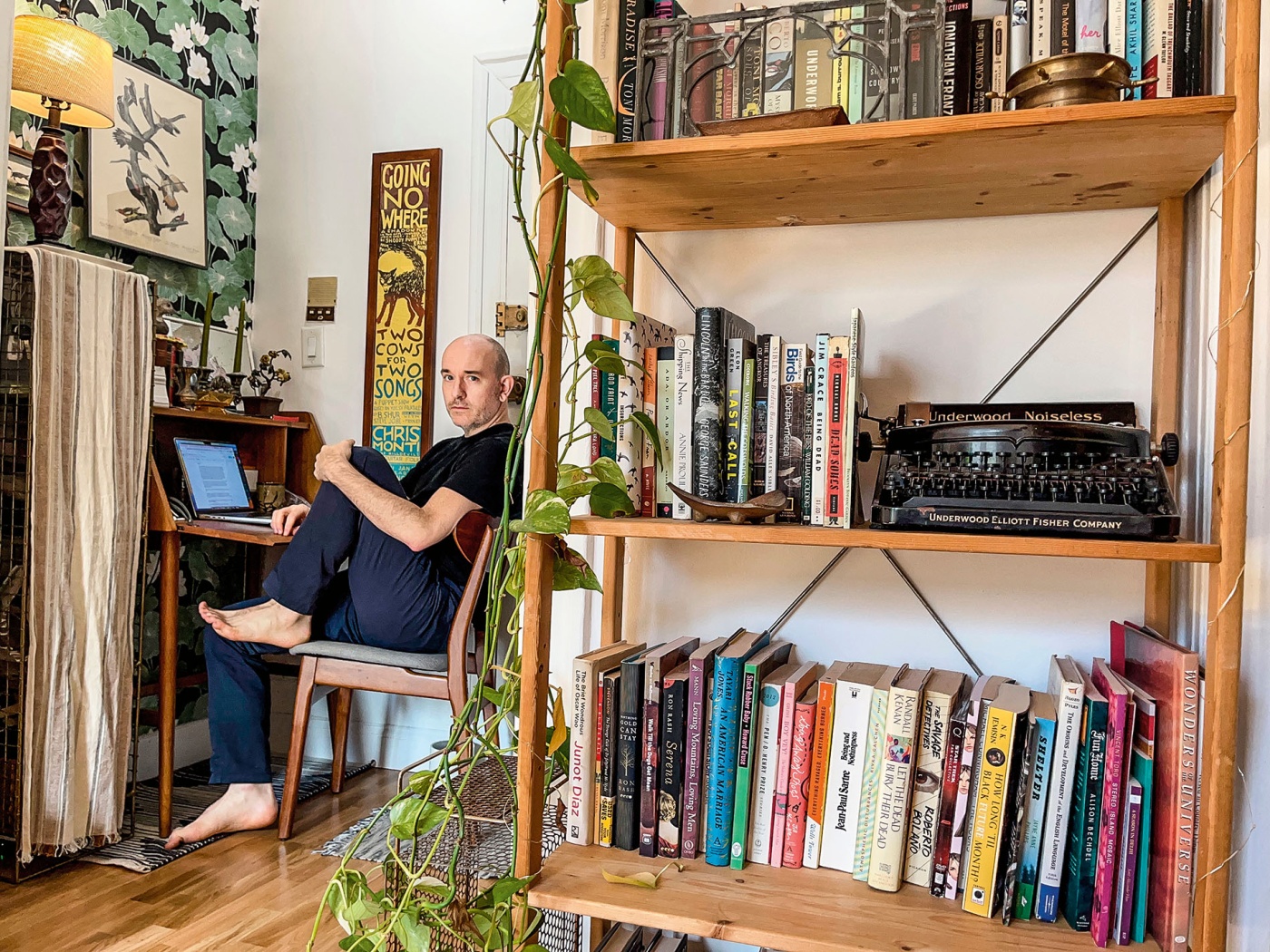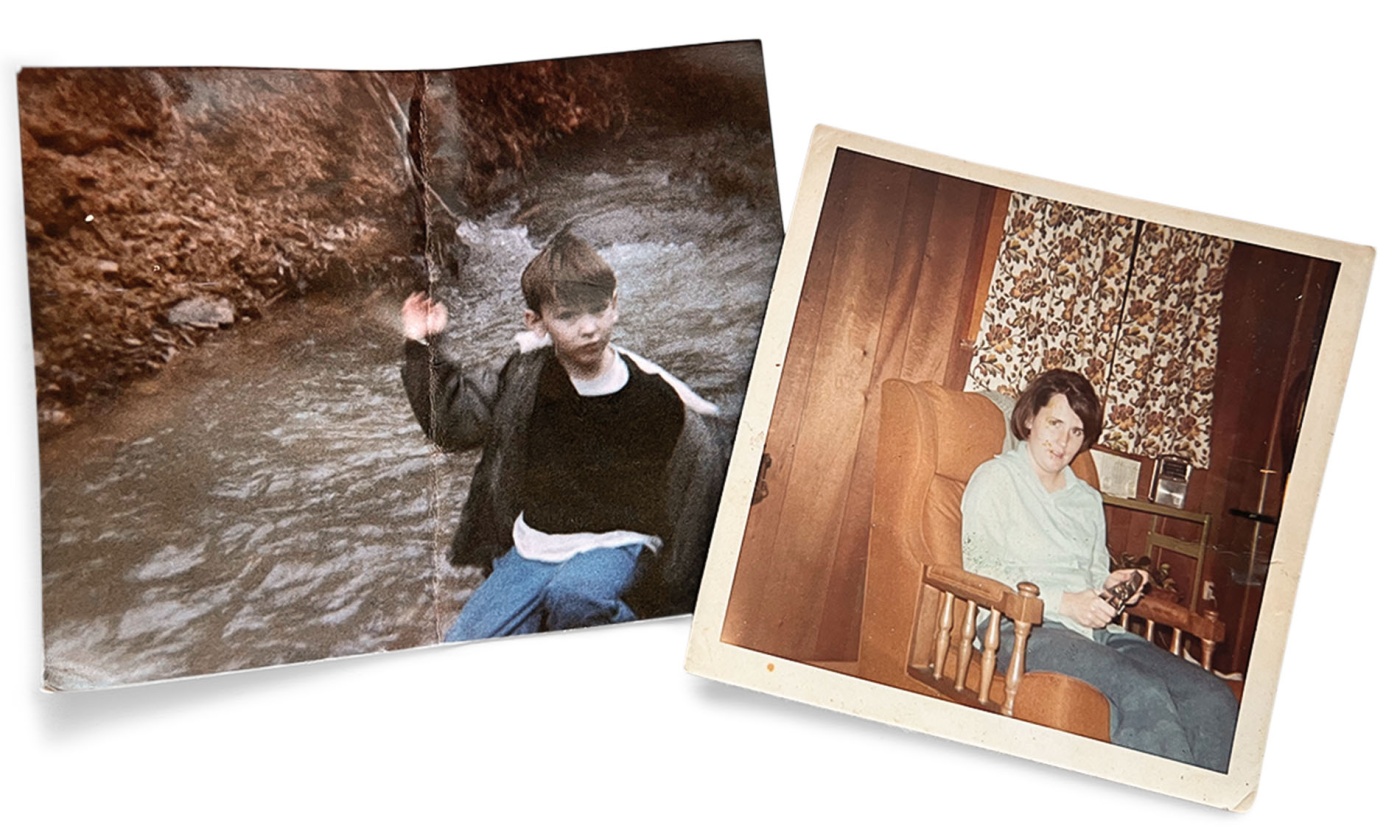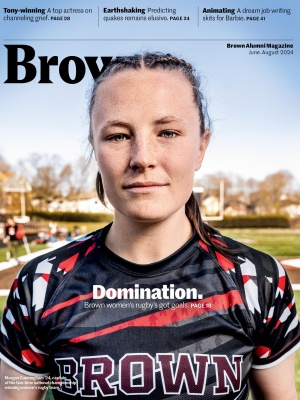Surviving & Thriving Despite Family Estrangement
A new memoir on coming out of the closet and being thrown out of the family

By his sophomore year at Brown, Jonathan Corcoran ’07 was still in culture shock from leaving his poor evangelical West Virginia upbringing for the privilege and liberalism of an Ivy League campus. (He was the only West Virginian in his class.) But then, while staying with the parents of his boyfriend, Sam Klugman ’06 (Corcoran and Klugman are now married), he finally came out over the phone to his mother, Patricia, a fiercely religious woman who’d led a life of abandonment, abuse, and hardship. “You are no longer my son,” announced Patricia, hanging up and leaving Corcoran in tears.

No Son Of Mine, published in April by University Press of Kentucky, is Corcoran’s heart-wrenching memoir of what came both before and after that moment until Patricia died at age 74 in the early months of the pandemic, of non-Covid causes. Among other things, it’s an account of trying to keep it together at Brown amid rejection from not only his mother but also his father, who told him that if he and Klugman ever tried to marry, they would face his shotgun.
“Brown was about learning to live without my blood family while relying on friends to be a new kind of community,” recalls Corcoran, who lives in Brooklyn and teaches writing at NYU. The abrupt cutoff from his kin, he says, was painful yet liberating. “I’d been stripped of my family and found myself in a place where I could reinvent myself. Brown was where I learned to live without shame.”
Corcoran says writing the memoir was cathartic. “It was as close to putting a period on the story as I could get and has allowed me to move on. Writing and telling stories requires us to make sense of events.” One thing he had to reckon with was his mother’s deep disappointment over her own life: “The older I got, I began to see how hurt she was, which didn’t make me feel any better but did make me understand her a little bit more.”
Corcoran now lives a free, busy life in New York City with his husband and a wide network of friends; his parents have both died. “I’d like to say I’m the best version of myself that I’ve ever been,” he says. Years of family trauma took a toll on his physical and mental health, which have since improved dramatically, he says. “I hope this book finds the people who need it, those who’ve experienced family estrangement.” He points to the surge in anti-LGBTQ laws that have passed recently, many in the part of the country he’s from. “I keep trying to tell myself that what happened to me couldn’t happen today, but I know that’s not true.”





